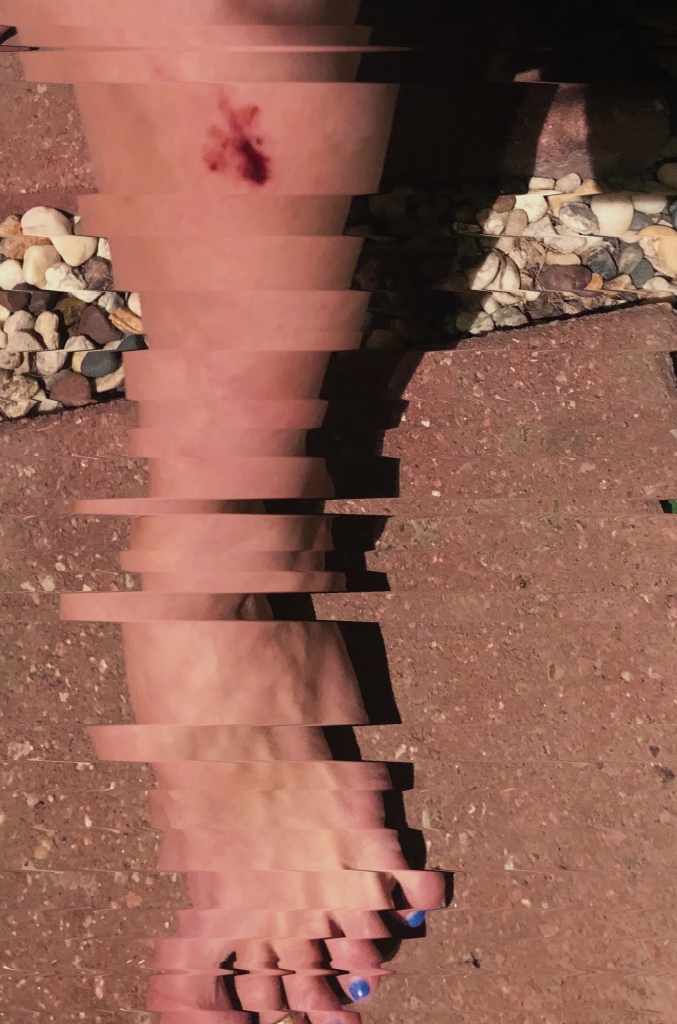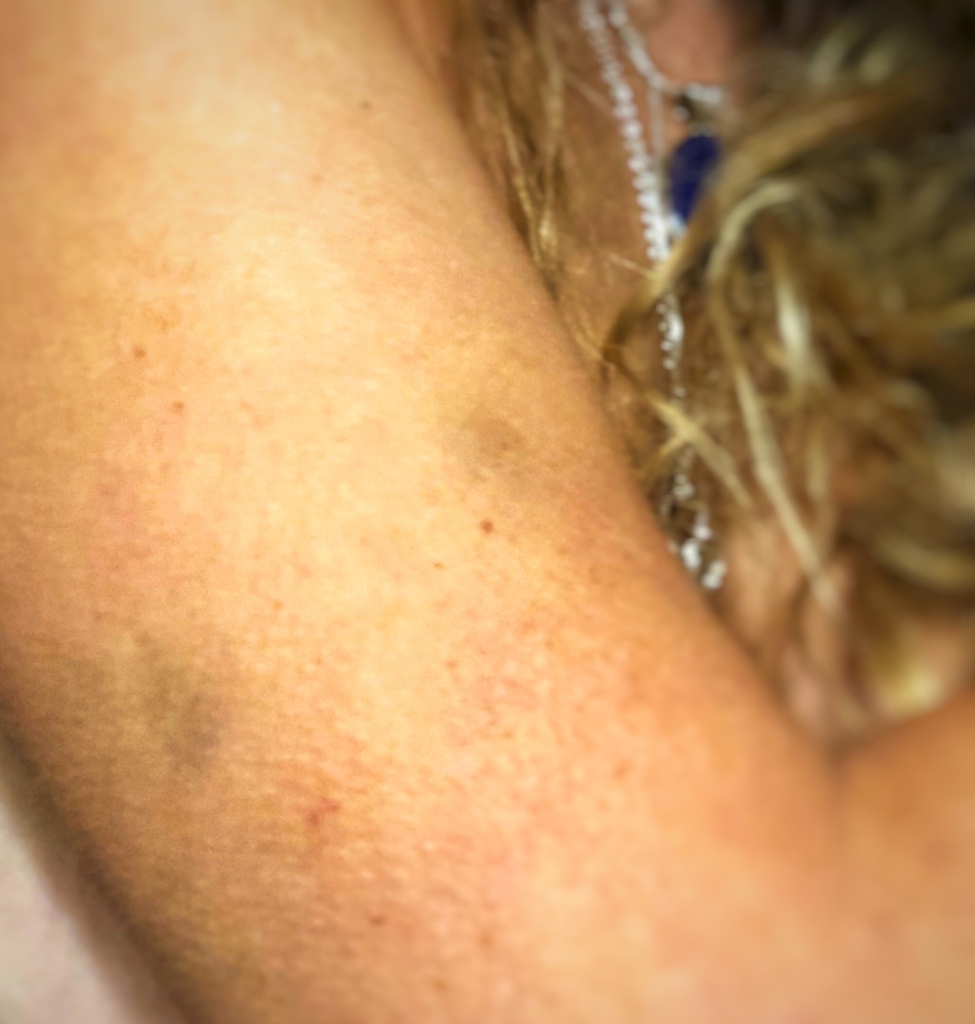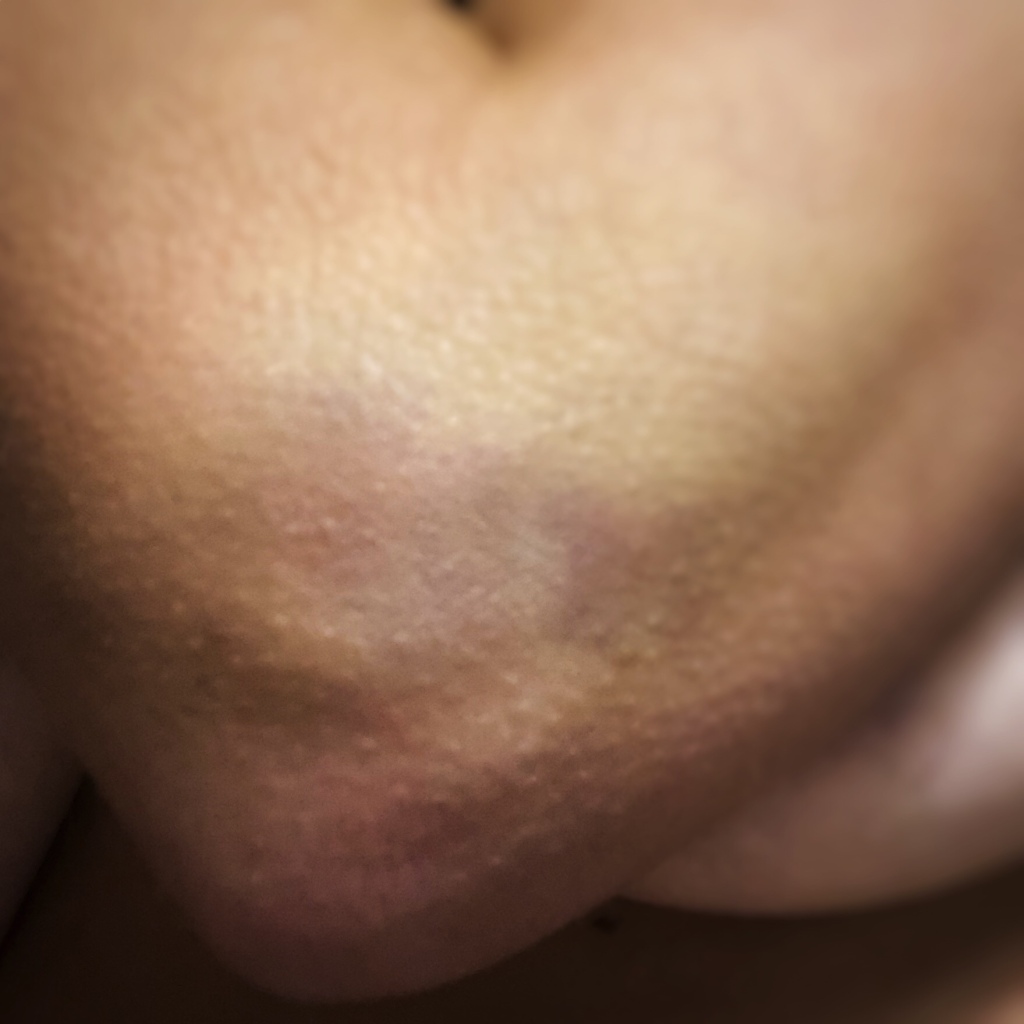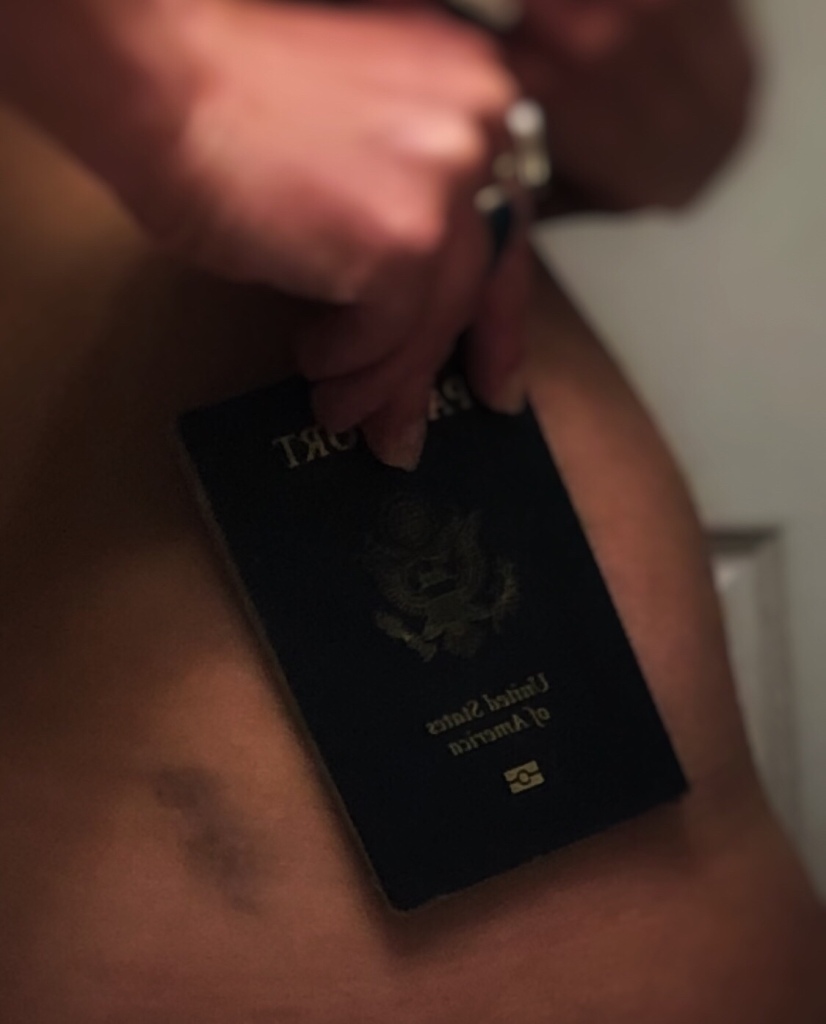“Why didn’t she just leave?” That is the question most ask when they find out a woman has been suffering battery and abuse. It seems so simple, so obvious and yet any woman that has been abused will tell you that it is anything but simple. I once thought I would never be one of those women who allowed a man to physically assault her; that I would never tolerate it. I am here to tell you that is a dangerous judgement to impose, for it is never that cut and dry. Ending any romantic relationship is hard. It is far harder when you have been isolated from friends and family, psychologically beaten down, financially controlled and physically threatened. One cannot simply ask, “why didn’t she just leave,” as though it was that straightforward.
Domestic violence is not always easy to recognize. Sure, physical violence such as punching or choking is easy to identify, but what about more subtle forms of abuse such as making you feel guilty all the time or making you think you are crazy. This type of emotional abuse isn’t easily recognized, and over time, your abuser grooms you to doubt yourself and whittles away at your self-esteem so he or she can gain more power and control over you. While emotional abuse does not always lead to physical abuse, physical abuse in relationships is nearly always preceded and accompanied by emotional abuse.
Abuse is anything but love, but love will likely be one of the biggest factors in why victims do not leave abusive relationships. When we love someone, we want to see the best in them, even if that means dismissing and justifying the abuse. Victims of abuse have been groomed to believe the abuse was their fault, most always the abuser will blame the victim, project onto them and then claimed to be the victim. Generally, most victims have a difficult time recognizing and categorizing the abuse for what it is, let alone accepting that it is at no fault of their own, for their love of their abuser is blinding.

On average, nearly 20 people per minute are physically abused by an intimate partner in the United States. During one year, this equates to more than 10 million that are abused. Physical abuse is more common than we give credence to and yet we live in a society where the most common question initially asked was, “why didn’t she just leave?” That question is undoubtedly a form of victim blaming and something that we as a society must take action to minimize. By definition, Victim Blaming is, “when the victim of a crime or any wrongful act is held entirely or partially responsible for the harm that befell them.”
As long as we live in a culture that blames victims for ‘not leaving’ instead of holding perpetrators of violence accountable for committing such atrocities in the first place, a critical mass of victims will not feel safe and supported enough to come forward with their stories. Unless you have been physically abused, one can not possibly begin to understand the dozens of reasons one stayed with their abuser, it simply is not something that should be judged or preconceived in any mannerism.

I had thought that the most difficult thing I’d ever been faced with was to leave an abusive relationship; that was true until I chose to stand up to my abuser, under oath and in the presence of the law. Only after I prepared and testified against the verbal, emotional and physical abuse I had endured for three years did I truly understand why most women do not stand up to their abuser, let alone vocalize their abuse.
According to recent studies far more than half of domestic abuse goes unreported. Looking back at my judgements and perceptions of abuse prior to being victimized, I thought I would never question if I would report abuse to officials or question if I should press forward within the justice system. I am here to remind you, unless you have been in such a situation, you can never fully comprehend the choices that are weighed in making this vital step forward against the act of abuse and the abuser.

Preparing for court was actually more difficult for me than my recollection of the abuse I did endure. The reason behind that largely is centered around the different perspective: the perspective while you are in the cycle of abuse is rarely as clear as the perspective you have after you have left the cycle of abuse. Often times while you are still in the cycle of abuse your perspective is blinded by love and/or denial. We typically justify our abusers patterns, behaviors and actions more times than not because we love the person who harmed us; it is far easier to be in denial than to accept that we are in love with an abuser. You want to believe that it won’t happen again as they have continuously pleaded, but again by the time physical abuse becomes present most victims have already been groomed and emotionally abused to doubt yourself, your self-worth and sanity.
The list of justifications for why we stay in abusive relationships can go on indefinitely, especially if you have been unfortunate enough to be entangled with a narcissist. Please, if you are ever with someone who admits they are a narcissist or have narcissistic tendencies, don’t linger, run for your life. I assure you it is not an insight to them taking strides to correct their ill behaviors, it is a dark warning. Avoiding that warning for me not only cost me years of my life but more emotional and physical grief than I ever could have imagined at that time.

Why did I stay? Why did I not see it as clearly as I see it now for the abuse it was? Why did I hold on to the hope that things would change? Why did I continue to allow him to tell me everything was my fault? Why didn’t I stand up for myself? Why did I not fight back? For me, looking back at the relationship and the cycle of abuse my perspective is completely different, I can see things clearly. I can honestly look back and not find one single time where he abused me that wasn’t started by an argument that was founded by his lies, manipulation and deceit. Every single time he abused me, it was to cover up his lies, to cover up his three other girlfriends and however many sex partners he had, he used violence to control me. I see now that every single time he abused me, I had been valid in my questioning, in my feelings, in my concerns, in my fears that led to him emotionally, verbally and physically beating me down. Abuser’s have a need to exert control, it is at the very foundation of their drive to abuse.
Not only did I choose to not leave my abuser, time after time I defended him; I protected him more than I ever protected myself. I think back to a time where a neighboring business called the police to his place of work after hearing him rage on me. I remember it like yesterday, the woman at the salon called over complaining about how her clientele could hear him screaming at me through the walls. I remember him raging on her through the phone justifying his abilities to have a “fight” with his girlfriend shortly before hanging up on her. I knew in that moment it was only going to get worse from there.

I remember seeing his temper go from very bad to very dark after that call. I remember feeling frozen unable to move with the grips of his hands, digging in so deep my arms bruised for a week. I remember him throwing a table at me in a fit of anger and glass breaking everywhere around my bare feet. I remember the way it felt as my body hit the cold hard ground as he threw me to the floor. I remember the paralyzing fear I felt in the abusive acts. When the police showed up you would think I would be relieved but it caused more crippling fear. My instinct was to protect him, to avoid further reason to anger him. After all, I loved him, I didn’t want him going to jail for domestic abuse. Even now, as I recall that incident, I remember him thanking me for covering for him with the police, I remember him telling me he could have been arrested had I said anything. And yet, even then, it did not fully register to me that he was abusing me. The abuse both physical and emotional breached a dangerous stage, it had become normalized.
I often found myself in a situation where I had my friends, family, police and soon my lawyer all wanting to know why I stayed. There were different stages in and after the relationship that I attempted to answer this question, after all I needed to understand for my own growth. I had been asking myself this very question for years. Of course during the time I was still in the cycle of abuse my perspective was skewed with a state of confusion and denial. How many times had he told me that I was crazy, or that I was the abusive one, or that things didn’t happen the way I remembered them? I was so battered down that I couldn’t accept the abuse for what it was, I was still justifying for my abuser.
I simply wanted something I could revert back to so I could understand his perspective, so I could determine if I was as crazy as he continued to deflect. The fights alone were mentally and emotionally draining lasting sometimes up to 8 solid hours! Abuse alone is traumatizing, but hours of nonstop emotional abuse intermittent with physical abuse, will leave a victim defeated in more ways than one. Even then, when I was nearing the end, when I was gathering my strength to leave the relationship I still held on to the justifications of my love for him, of my sheer denial. It was almost too much to bear to see the dark truth as it truly was, it was easier to believe his lies: that I was at fault, that I made him act in violent ways, that I was deserving of his harm.
I was really at a point where I was questioning things and there were times in which I recorded conversations because the emotional abuse, the gaslighting, the absolute deflection of what truth was night and day from his perspective to mine. It lead me to recording the conversations, not because I thought there would be malice but because I was so emotionally battered down in a constant state of confusion that I needed to understand if I was as crazy as he told me I was. Even though I recorded the conversations, I never have the courage to listen to them while I was still in the relationship, another indication of how deeply denial can be. When officials wanted documentation of the abuse, I was grateful to have them, but both shocked and traumatized to relive the abuse.

When I say there are two different perspectives, there is a perspective from the abused mindset and there is a perspective from the post-abuse mindset. One is where you are still justifying the abuse and are still in the cycle of abuse, the other is when you are out of the cycle and you see things clearly without the mass illusion that an abuser puts on their victim. For me, it was far more traumatizing for me to later watch the abuse happening; to see how much I cowered under him, how little I stood up for myself or even had dignity in my self worth or self respect. To watch him verbally, emotionally and physically beat me down to a brink where I had at once felt that I deserved the abuse that was inflicted on me was nothing short of crippling: it was devastating, it was sickening, it was bewildering, it was everything that I thought I would never allow. It was loud, it was in my face, it was in my heart, it was in my mind, it was in my body, it was in my soul; it completely encompassed me.
That was simply the audio recording and the texts, nothing could prepare me for the emotions that followed when I watched months of abuse from the video survallience I had from home security. Going to the video surveillance, watching him cower his body over me, watching him charge after me, watching him use his body language to threaten me: the puffing of his chest, the dagger in his eyes as he screamed vile projections in my face, the clinching of his fist as though he was going to strike at me (again), the loud vile insults of belittlement, it’s a wonder I didn’t see it for what it was while I was in the cycle of abuse. How could I not have?
Individuals who have survived abuse have enough self blame, self loath and self disgust that they have been given from their abuser, that they have put on themselves that they don’t need any other judgements or forms of victim blaming. The absolute last thing a survivor of abuse needs is an outsider who has no true indication of what has happened to put their two cents on a matter that they do not understand and then casually ask “why didn’t she just leave?”

I didn’t leave when he emotionally berated me. I didn’t leave when he isolated me from my support system. I didn’t leave when he broke things in a fit of anger. I didn’t leave when he flinched his fists to warn me. I didn’t leave when he punched holes in my wall. I didn’t leave when he bruised my arms with his brut force. I didn’t leave when he shoved me and pinned me down restraining me completely. I didn’t leave when he threw me to the ground bruising my body. I didn’t leave when choked me out, unable to breath. I didn’t leave when another woman came to me warning me that he had been cheating on me the entire relationship. I didn’t leave when his other girlfriend told me he gave her a concussion by banging her head into his vehicle. I didn’t leave when I saw the evidence of his assault on her and started to believe the pattern of abuse wasn’t my fault. I didn’t leave the first, second, third or other countless times.
At the darkest stage of abuse I didn’t leave, it still took me weeks to process, to see the truth, to acknowledge the abuse. And even then, when I did leave, I didn’t leave entirely because of the abuse, I left because I realized he had been cheating, he had been lying, he had been lying to me since the day I met him. So I assure you, the last thing any person who has been physically abused wants to answer, is “why she did not leave.” Nor should she have to bear that burden of questioning. Asking “why she didn’t leave” is the wrong question to ask. It is the wrong mindset to have. The next time you hear a story of abuse, I hope your initial inner monologue isn’t “why didn’t she leave.” Abuser’s have many masks they wear, rather than questioning the victim, I strongly suggest you question how well you know the person accused of abusing another.
Melissa, it also took me a very long time to realize I was just a punching! I was beaten down physically and emotionally! I never felt so alone. I’m sorry u have gone through this. I for one, know it’s hard to believe that you or I have been in this situation. Keep your chin up and hold your head high! Love yourself first. That was told by a good friend who had been through abuse herself. I love you Melissa!
LikeLiked by 1 person
I’m so very sorry you can relate. I so appreciate your uplifting words. I’m in a really strong place right now, but as you know abuse is traumatizing and hard to work through the various stages ❤️🩹 sending you love as well
LikeLike